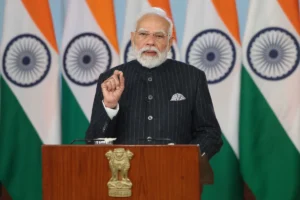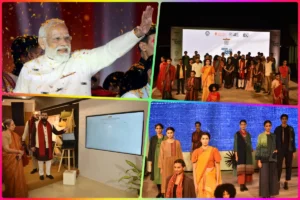
India’s foreign policy today is shaped by a rapidly evolving geopolitical landscape marked by shifting alliances, regional tensions, and the resurgence of global power rivalries.
New Delhi faces the complex task of balancing its traditional ties with Russia, strategic partnership with the United States, and rising security concerns posed by China and Pakistan.
The volatility of US foreign policy under President Donald Trump’s tenure had a lasting impact on Indo-US ties.
While PM Narendra Modi aligned with Trump’s ‘America First’ sentiment by coining ‘Make India Great Again’, India maintained strategic autonomy, especially in trade and immigration matters.
Despite contentious issues, India and the US continue to share common ground in counterterrorism and regional security.
India’s decision to quietly cooperate on illegal immigration and adopt a pragmatic approach on trade disputes with Washington reflects this nuanced diplomacy.
However, India remains firm in resisting arbitrary trade pressure while positioning itself as a reliable global market.
Managing China-Pakistan nexus & military threats
India’s core security challenge lies in the deepening military and intelligence cooperation between China and Pakistan.
Following the Pahalgam terrorist attack, India’s swift military retaliation in Pakistan-occupied Kashmir exposed the military synergy between Beijing and Islamabad, including Chinese hardware and Turkish drones.
This growing hostility has prompted India’s defence leadership to acknowledge the ‘three-front challenge’ posed by China, Pakistan, and faith-based terrorism.
The increasing influence of China in neighbouring states such as Bangladesh further complicates regional dynamics.
The Islamic terrorism threat & the Afghan factor
India remains concerned about Islamic terrorism emerging from the Afghanistan-Pakistan belt.
Pakistan’s ‘strategic depth’ in Kabul has enabled it to broker quiet understandings between the Taliban and China, allowing Beijing’s Belt and Road Initiative to extend into Afghanistan.
In exchange, the Taliban has muted criticism of China’s treatment of Muslim minorities.
India’s strategy focuses on exposing Pakistan’s duplicity to the West, particularly its dual role in nurturing jihadist elements while portraying itself as a victim of terrorism by groups like Tehrik-e-Taliban Pakistan (TTP).
Middle East tensions & global repercussions
India has managed strong ties with all major Middle Eastern players, Israel, Iran, and Saudi Arabia.
However, the recent Iran-Israel military conflict threatens global peace. With the US siding with Israel and Russia-China backing Iran, the conflict risks spiralling into a wider civilizational clash.
India has called for an immediate ceasefire, condemned atrocities in Gaza, and reiterated the need for a peaceful resolution in both the Middle East and Ukraine.
Its support for a multipolar world allows it to remain non-aligned in great power conflicts while maintaining moral leadership.
India’s evolving strategy emphasises self-reliance in defence and economic growth, alongside global engagement based on mutually beneficial partnerships.
As a major democratic power, India remains steadfast in opposing terrorism, promoting peace, and maintaining ties with both the US and Russia, while cautiously navigating its rivalry with China.
Also Read: Swami Avimukteshwaranand Saraswati; Challenging PM Modi Remains A Difficult Task
To read more such news, download Bharat Express news apps





















